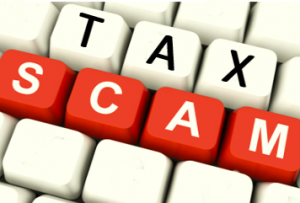Reports are popping up around the country that unlicensed and crooked income tax preparers are telling taxpayers that they need to make the Affordable Health Care Act’s individual shared responsibility payments directly to the tax preparer. The ACA is also known as Obamacare. As a result, the IRS is warning that taxpayers should choose their tax professional carefully .
The IRS reminds individuals who owe the payment that it should be made only with their tax return or in response to a letter from the IRS. The payment should never be made directly to an individual or return preparer. Most people don’t owe the payment at all because they have health coverage or qualify for a coverage exemption.
The IRS has received several reports of this kind of unscrupulous activity. In some cases, return preparers have told taxpayers to make the payment directly to them, even though the taxpayer had Medicaid or other health coverage and doesn’t need to make the shared responsibility payment at all. In some parts of the country, unscrupulous return preparerstargeting taxpayers with limited English proficiency and, in particular, those who primarily speak Spanish.
These preparers are asking for direct payment to them, but their reasons vary. Methods include:
- telling individuals that they must make an individual shared responsibility payment directly to the preparer because of their immigration status,
- promising to lower the payment amount if the client pays it directly to the preparer, or
- demanding money from individuals who are exempt from the individual shared responsibility payment.
If you believe you have been targeted by an unscrupulous preparer or you have been financially affected by a tax return preparer’s misconduct or improper tax preparation practices, you can report it to the IRS on Form 14157, Complaint: Tax Return Preparer.
Taxpayers who are unsure if they must make a payment can use our Interactive Tax Assistant tool – Am I required to make an Individual Shared Responsibility Payment? – to help determine if they qualify for an exemption or owe the payment.
Choose a Tax Preparer Carefully –
Ta preparers who are CPAs, Enrolled Agents (EAs) or attorneys are the only professionals who meet the requirements to represent taxpayers on their behalf and in front of the IRS if there is an audit.
Tips about Individual Shared Responsibility Payments
- Payments are not required for individuals who had coverage or qualify for an exemption for each month of the year.
- Individuals who are not U.S. citizens or nationals, and are not lawfully present in the United States, are exempt from the individual shared responsibility provision and do not need to make a payment. For this purpose, an immigrant with Deferred Action for Childhood Arrivals (DACA) status is considered not lawfully present and therefore is exempt. An individual may qualify for this exemption even if he or she has a social security number (SSN).
- Taxpayers either pay the shared responsibility payment with their tax return or in response to a letter from the IRS requesting payment. They should not make the payment directly to any individual or return preparer. If a shared responsibility payment is due, taxpayers should pay it to the United States Treasury. In most cases, the shared responsibility payment reduces a taxpayer’s refund. If there is no refund, the payment will increase the amount a taxpayer owes on the tax return.
Find out more about the tax-related provisions of the health care law at IRS.gov/aca.
Thanks for reading CPA Practice Advisor!
Subscribe Already registered? Log In
Need more information? Read the FAQs
Tags: Benefits, Income Taxes, IRS




